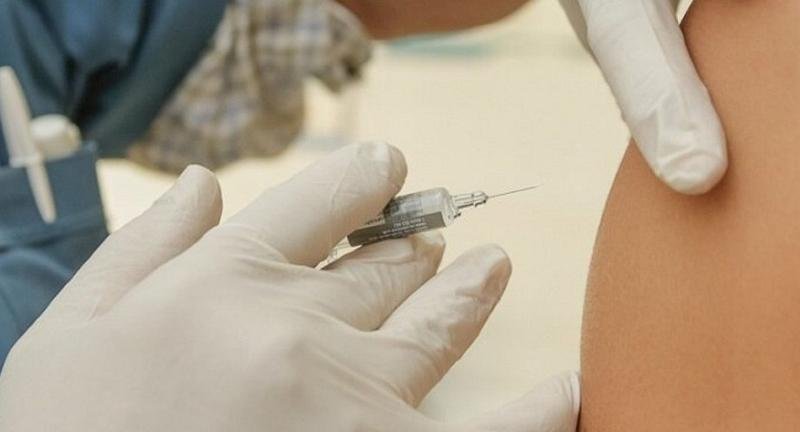By Alfonso Sierra & George Camacho, El Popular
Leer en español
Hundreds of millions of people have bared their shoulders in order to get the COVID-19 vaccine, which also protects against its variants (Delta and Omicron to be specific). However, a large part of eligible Americans still have not wanted to get vaccinated or are not completely vaccinated.
One of the reasons for not wanting to get vaccinated is due to the amount of false information that has spread rapidly on social media and in person, persuading thousands of citizens and residents so much so that they do not want to get vaccinated. Furthermore, one study by the Kaiser Family Foundation in 2021 found that 80 per cent of adults said that they “definitely would not” get vaccinated because they believe or they supposedly believe in at least one myth about the COVID-19 vaccine that they cannot disprove.
Therefore, in order to debunk those myths, it is necessary to have information from sources related to the research and production of the vaccine and the global crisis, especially now that we are going through a time in our life when many people have died and several have been seriously affected by this virus.
The following are several of the myths:
Myth 1: The vaccine was produced very quickly so that it could be effective
It is true that the COVID vaccine was produced very quickly, but the steps that moved quickly were really the paperwork that was needed, which takes a long time to process, and to obtain approval.
The existing vaccines in the U.S. from Pfizer-BioNTech, Moderna and Johnson & Johnson were mass tested on hundreds of thousands of people in clinical trials around the world and rigorously evaluated for safety and effectiveness.
Scientists around the world had an advantage that helped them accelerate the process. This advantage was that they had viruses under the microscope for years, including ones that cause respiratory problems like SARS and MERS. In addition, the investment in the early production and distribution also helped to quickly improve distribution and vaccination to the most vulnerable people.
Myth 2: The vaccine modifies my DNA
This myth, which was extensively transmitted over social media, caused panic throughout communities. When people thought that their DNA, the molecules that make us who we are, would be altered or mutated.
Many people did not want to get vaccinated at the thought of the horrors that these vaccines were going to cause. However, none of these vaccines interact with anybody’s genetic material, as was confirmed by the CDC.
The purpose of the vaccine is to help our body’s cells build the protection needed against the coronavirus, but the vaccine’s material never breaks through the nuclear barrier of the cell where DNA is found.
Besides that, mRNA type vaccines, like the COVID vaccines, after they use the instructions given to them, they start to break down and the body gets rid of the mRNA.
Myth 3: The vaccine has microchips to trace us
These rumors were also spread through social media, to such an extent that people who had been vaccinated started using magnets to attract the microprocessors that supposedly had been injected. They never were lucky enough to get them out, because they did not exist.
The vaccines were developed to help people combat the coronavirus, not to trace them, as the CDC stated in a bulletin. Furthermore, the vaccines do not contain metals or materials that can cause an electromagnetic field.
Myth 4: The vaccine can cause infertility
Another myth that really took off through the social media was that the vaccine could cause infertility problems. Many men and women, especially those of reproductive age, felt overwhelmed and did not want to be vaccinated. This myth caused terror in young couples hoping to have a family.
However, there is no evidence whatsoever that this vaccine, in fact, any vaccine, causes infertility problems in either men or women. Furthermore, the CDC has recommended the vaccine for nursing and pregnant women and those planning on having a family in the future.
Studies examined by the National Institutes of Health, examined possible links between the COVID-19 vaccine and menstrual changes among the women who reported not having or partially having their periods after being vaccinated.
Researchers came to the conclusion that the vaccines alter women’s menstrual period very little, according to Dr. Alison Edelman of the Oregon Health and Science University. She explained that the change is less that one a day of the month in which the vaccination took place, but that there were no changes in the natural menstruation process. Indicating, as well, that there are other factors that can lead to temporary changes in a woman’s menstrual period, such as stress, changes in daily life related to the pandemic, being infected with SARS-CoV-2, or other conditions.
All of us, in one way or another, have been vaccinated against diseases that at some time or another could have taken our lives or left us crippled, such vaccines have to be in our bodies in the first five years of our lives. Even so, we never thought whether these vaccines could hurt us; but we are proof that they do not cause medical problems, infertility or electromagnetic fields, and that is why we take them without thinking about it.
Get vaccinated! Not just for yourself, but for your family. Visit Myturn.ca.gov to make an appoint at the vaccination clinic nearest you.




